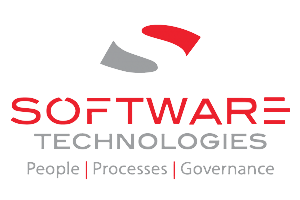
In today’s fast-paced business landscape, effective board management plays a crucial role in driving organizational success. With the advancement of technology, traditional methods of board management, such as physical paperwork and in-person meetings, are being replaced by more efficient and secure digital solutions. Board management software offers organizations a comprehensive platform to streamline board processes, enhance collaboration, and ensure data security. However, choosing the right board management solution for your organization requires careful evaluation and consideration. In this article, we will explore key factors to consider when evaluating and selecting a board management solution.
- Identify Your Organization’s Specific Needs
Before starting your search for a board management solution, it is essential to understand your organization’s unique requirements. Consider factors such as board size, meeting frequency, the complexity of board materials, and the need for remote access. Create a list of must-have features and functionality that align with your organization’s goals and objectives.
- Security and Data Protection
Board materials often contain sensitive and confidential information. Therefore, security should be a top priority when selecting a board management solution. Look for software that offers robust encryption protocols, multi-factor authentication, and data backup procedures. Ensure that the platform complies with relevant data protection regulations.
- User Experience and Accessibility
An intuitive and user-friendly interface is essential for seamless adoption and engagement with the board management solution. Evaluate the software’s user experience and accessibility across various devices and operating systems. Consider features like offline access, annotation capabilities, and ease of sharing documents to enhance collaboration and productivity.
- Board Meeting Management Features
Evaluate the solution’s ability to streamline board meeting processes. Look for features such as agenda creation and distribution, meeting scheduling, minute-taking, and task assignment. An effective solution should allow for real-time collaboration, enabling board members to access meeting materials, annotate documents, and communicate securely.
- Document Management and Version Control
Efficient document management is critical for board operations. The board management solution should provide a centralized repository for storing and organizing documents, with robust version control to track changes and revisions. Look for features like automatic document indexing, search functionality, and integration with popular cloud storage platforms.
- Collaboration and Communication Tools
Effective board collaboration and communication are essential for decision-making and driving organizational progress. Consider features such as discussion forums, voting capabilities, secure messaging, and virtual meeting support. Integration with popular communication tools like email, video conferencing, and project management platforms can further enhance collaboration.
- Integration Capabilities
To ensure seamless workflows and avoid duplicating efforts, it is important to assess the solution’s integration capabilities. Look for software that can integrate with other key systems used within your organization, such as customer relationship management (CRM), enterprise resource planning (ERP), or document management systems. Integration can streamline processes and reduce manual data entry.
- Training and Support
Selecting a board management solution that provides comprehensive training resources and ongoing support is crucial for successful adoption. Evaluate the vendor’s training materials, online resources, and customer support channels. Consider factors like responsiveness, availability, and expertise of their support team.
- Pricing and Scalability
Evaluate the cost structure of the board management solution, considering factors such as subscription fees, implementation costs, and ongoing maintenance charges. Assess whether the pricing aligns with the value and features offered by the software. Additionally, consider the solution’s scalability to accommodate future growth and evolving needs of your organization.
Choosing the right board management solution can significantly enhance governance, collaboration, and productivity within your organization. By evaluating the specific needs of your organization, considering factors such as security, user experience, collaboration tools, integration capabilities, and support services, you can make an informed decision. Take the time to explore, request demonstrations, and gather feedback from key stakeholders to ensure that the selected solution aligns with your organization’s goals and sets the stage for effective board management in the digital age.
